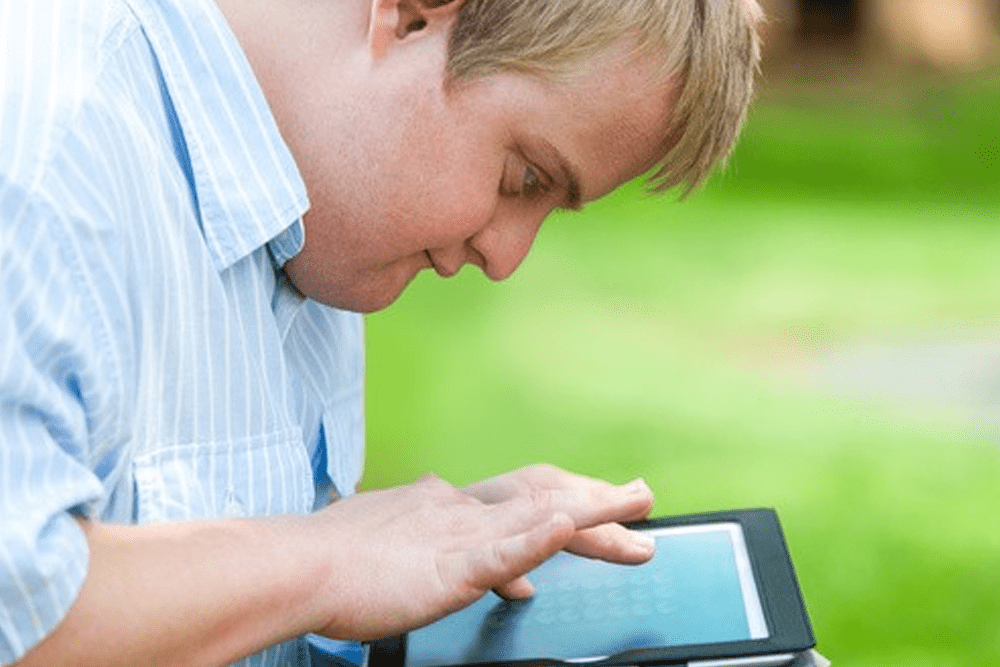Everyone is different so you’ll need to decide whether your young person is likely to want to go to a meeting or an appeal, and how well they would cope.
School, college and other meetings
 Young people can and do go to meetings and as they get older, this is a helpful way for them to get involved in making decisions. Some people also like to know what everyone is talking about! But not everyone will want to, or will be able to manage it. Meetings can feel overwhelming and sometimes be boring too.
Young people can and do go to meetings and as they get older, this is a helpful way for them to get involved in making decisions. Some people also like to know what everyone is talking about! But not everyone will want to, or will be able to manage it. Meetings can feel overwhelming and sometimes be boring too.
If your young person wants to be involved, you could ask them to come to the start of the meeting for a few minutes. It’s a good way to take part, see what the meeting is like and have a say with the least amount of stress. They can talk about what’s working at school or college and what they need help with. If they want to stay for the whole meeting, they can always ask to take a break.
Mediation meetings
Mediation is an informal, confidential and voluntary process. An independent person (a mediator) helps people who disagree about something to try and reach an agreement that both sides are happy with. It can be used when the parents of a young person under 16 disagree with a decision the local authority has made about their Education Health and Care (EHC) plan or an assessment for one. If the young person is over 16, then they decide whether to go to mediation or not, as long as they have mental capacity (see section above ‘What happens when my young person reaches 16?). If they don’t have mental capacity, they can ask you or another advocate to act as their representative.
Young people can, and do, go to mediation meetings. Although the mediator will try and make things as relaxed and easy as possible, this type of meeting can feel more stressful and intimidating than a school or college meeting.
If your young person wants to take part, or they’ve asked for the meeting, it’s a good idea to make sure they’re well prepared. Ask them to decide what they want to say, what’s important to tell everyone at the meeting and what questions they have.
Sometimes it can help to think about what the other side might be saying and plan what they could say in reply. Sometimes things don’t go as planned, so work out beforehand how you’ll deal with that. During these meetings you can ask for a break to go away and talk about something between you, or simply to stop the discussions for a short while.
Tribunal/appeal hearing
 When a local authority makes certain decisions about the education and/or training of a young person with SEND, there is a right of appeal to an independent tribunal. That means if you and your young person disagree with some of the decisions made about an EHC plan or assessment, you can challenge those decisions.
When a local authority makes certain decisions about the education and/or training of a young person with SEND, there is a right of appeal to an independent tribunal. That means if you and your young person disagree with some of the decisions made about an EHC plan or assessment, you can challenge those decisions.
If the decision is about a child up to compulsory school age, parents and carers have the right of appeal. If the decision is about a young person over compulsory school age and under 25, then it’s the young person who has the right of appeal, as long as they have mental capacity.
Children and young people can and do go to tribunal and give evidence, if the tribunal panel agrees. It’s helpful for young people to be there to explain their case and the appeals panel will want to hear anything they have to say. Your young person may also want to ask questions of the local authority and any witnesses they have. If they are the person appealing, you can go with them to give support.
The appeal panel is made up of a judge and two other members with SEND expertise, and although they’ll do their best to make everyone feel comfortable it can be a difficult experience. It’s good to bear in mind that tribunal hearings can sometimes last for several hours and can be tiring and unsettling for older children and young people. If your young person has asked you to be their representative they may want to come but may not want to stay for the full hearing.




 Your young person’s views, wishes and goals are the foundations of good planning and support. If the support isn’t what’s important to them, then it’s unlikely to work. So, good planning and support starts with helping them to understand and share what they’re good at, what they need more help with, and what their goals are for adult life.
Your young person’s views, wishes and goals are the foundations of good planning and support. If the support isn’t what’s important to them, then it’s unlikely to work. So, good planning and support starts with helping them to understand and share what they’re good at, what they need more help with, and what their goals are for adult life. Some young people use view gathering apps such as
Some young people use view gathering apps such as  When a young person reaches 16 and the end of compulsory school age (the end of the school year in which they turn 16) the legal rights around making decisions pass to them and away from parents and carers.
When a young person reaches 16 and the end of compulsory school age (the end of the school year in which they turn 16) the legal rights around making decisions pass to them and away from parents and carers. Young people can and do go to
Young people can and do go to  When a local authority makes certain decisions about the education and/or training of a young person with SEND, there is a right of appeal to an independent tribunal. That means if you and your young person disagree with some of the decisions made about an EHC plan or assessment, you can challenge those decisions.
When a local authority makes certain decisions about the education and/or training of a young person with SEND, there is a right of appeal to an independent tribunal. That means if you and your young person disagree with some of the decisions made about an EHC plan or assessment, you can challenge those decisions.